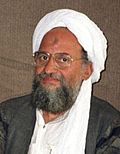The 2020s the '20s " and also known as "The Twenties ") is the current decade that began on 1 January 2020, and will end on 31 December 2029.
The 2020s began with the COVID-19 pandemic . The first reports of the virus were published on 31 December 2019, though the first cases are said to have appeared nearly a month earlier. The pandemic led to a global economic recession , a sustained rise in global inflation for the first time since the 1970s , and a global supply chain crisis . The World Health Organization declared the virus a global state of emergency from March 2020 to May 2023. While no longer considered a pandemic, many health critics consider the virus' effects to still be ongoing through new variants .
Several anti-government demonstrations and revolts occurred in the early 2020s, including a continuation of those in Hong Kong against extradition legislation ; protests against certain local, state and national responses to the COVID-19 pandemic; others around the world , particularly in the United States , against racism and police brutality ; one in India against agriculture and farming acts ; one in Israel against judicial reforms ; another in Indonesia against the omnibus law on jobs ; protests and strikes in France against pension reform ; political crises in Peru , Bangladesh , Armenia , and Thailand ; and many in Belarus , Eswatini , Myanmar , Afghanistan , Sri Lanka , Iran , China , Russia , and Venezuela against various forms of governmental jurisdiction, corruption , and authoritarianism ; along with citizen riots in the United States , Japan , and Brazil in an attempt to overturn election results. The world population grew to over eight billion people, and in 2023, India overtook China as the most populous country in the world. Among democracies in 2024, its elections saw an 80% loss of incumbent support worldwide, several losses being historic. That year, former U.S. president Donald Trump was reelected to a second, nonconsecutive term.
Ongoing military conflicts include the Myanmar civil war , the Ethiopian civil conflict , the Kivu conflict , the Mali War , the Yemeni civil war , the Somali Civil War , Sudanese civil war , the Syrian civil war , the Russo-Ukrainian War , and the Gaza war . The year 2021 saw the withdrawal of U.S. troops from Afghanistan and the fall of Kabul to the Taliban , ending nearly 20 years of war in Afghanistan. The Russian invasion of Ukraine became the largest conventional military offensive in Europe since World War II , resulting in a refugee crisis , disruptions to global trade , and an exacerbation of economic inflation . In 2023, a Hamas-led attack marked the first invasion of Israel since 1948 , triggering an Israeli invasion of the Gaza Strip , a Palestinian territory . The invasion has led to the displacement of nearly all 2.3 million Gaza residents, a humanitarian crisis , a famine , and a polio epidemic , sparking global protests against Israel. In 2024, a quick and renewed rebel offensive during the Syrian civil war led to the toppling of Bashar al-Assad and the fall of the Assad regime . Smaller conflicts include the insurgency in the Maghreb , the Iraq insurgency , the Philippine and the Mexican drug wars . (Full article...
From top, clockwise:
Abandoned government forces tank
Rebels at a statue of Bassel al-Assad, later pulled down
A destroyed image of Bashar al-Assad
Opposition and Saudi Arabian flags displayed on an Syrian Army tank
Rebels celebrating at the Umayyad mosque On 8 December 2024, the Assad regime collapsed during a major offensive by opposition forces . The offensive was spearheaded by Hay'at Tahrir al-Sham (HTS) and supported mainly by the Turkish-backed Syrian National Army as part of the ongoing Syrian civil war that began with the Syrian revolution in 2011. The capture of Syria's capital, Damascus , marked the end of the Assad family 's rule, which had governed Syria as a hereditary totalitarian dictatorship since Hafez al-Assad assumed power in 1971 after a successful coup d'état .
As a rebel coalition advanced towards Damascus , reports emerged that Bashar al-Assad had fled the capital aboard a plane to Russia, where he joined his family, already in exile, and was granted asylum . Following his departure, opposition forces declared victory on state television. Concurrently, the Russian Ministry of Foreign Affairs confirmed his resignation and departure from Syria. (Full article...
The following are images from various 2020s-related articles on Wikipedia.
Image 1 Balletcore inspired skirt worn with
boho-chic sweater and retro sneakers, 2023 (from
2020s in fashion )
Image 2 Androgynous outfit worn by alternative singer
Yungblud in 2023 (from
2020s in fashion )
Image 3 Aftermath of the earthquake at
Wajima morning market in January 2024. (from
2020s )
Image 4 Project 2025 document, published April 21, 2023 (from
2020s )
Image 5 Elderly man dressed up in
Stockholm in 2023 (from
2020s in fashion )
Image 6 An earthquake-damaged building in
Antakya , Turkey in February 2023 (from
2020s )
Image 7 Indonesian girls wearing face masks in 2022. (from
2020s in fashion )
Image 8 Countries with at least one election date altered (from
2020s in politics )
Image 9 Singer
Jack White wearing striped Madcap England blazer, 2021. (from
2020s in fashion )
Image 10 Batken Region in Kyrgyzstan. (from
2020s in politics )
Image 11 Highrise residential building ″Palestine Tower″ in Gaza following an Israeli strike during the
Gaza war . (from
2020s )
Image 12 An earthquake-damaged buildings in
Mandalay , Myanmar in March 2025. (from
2020s )
Image 13 Shinzo Abe (from
2020s )
Image 14 Project 2025 document, published April 21, 2023 (from
2020s )
Image 15 Highrise residential building ″Palestine Tower″ in Gaza following an Israeli strike during the
Gaza war . (from
2020s )
Image 16 Dominican Republican–Spanish actor
Jean Cruz [es ] wearing an early 1980s-inspired outfit in 2021 (from
2020s in fashion )
Image 18 Kacey Musgraves performing at the Pilgrimage Music Festival (from
2020s in music )
Image 19 Maximalist necklace, unknown designer, produced by
Pull&Bear ,
c. 2023 (from
2020s in fashion )
Image 21 2020: Blush pink dress designed by Shey Natividad for
DC Fashion Week . (from
2020s in fashion )
Image 22 Aftermath of the earthquake at
Wajima morning market in January 2024. (from
2020s )
Image 24 Indian actress
Ananya Panday wearing long green sequin dress, 2024 (from
2020s in fashion )
Image 28 Actor
Finn Wolfhard wearing early 2020s Indie Fashion (from
2020s in fashion )
Image 33 2021: Italian band
Måneskin in androgynous outfits. (from
2020s in fashion )
Image 34 Taiwanese teen girl in
Hanfu , 2024. (from
2020s in fashion )
Image 36 A 2020s
laptop gaming PC manufactured by MSI (from
2020s in video games )
Image 37 The
Imi N'Tala village was heavily destroyed by the Marrakesh-Safi earthquake in September 2023. (from
2020s )
Image 38 All pink Barbiecore inspired outfit worn by actress
Margot Robbie in 2023 (from
2020s in fashion )
Image 39 Confirmed deaths per 100,000 population as of 20 December 2023 (from
2020s in politics )
Image 40 A 2020s custom built
desktop gaming PC with
MSI manufactured hardware (from
2020s in video games )
Image 41 Oversized workwear-inspired outfit worn by
indie rocker Sam Fender in 2021. (from
2020s in fashion )
Image 42 Fairy Grunge clothing at an
Urban Outfitters store (from
2020s in fashion )
Image 43 Cardigan and
flannel coats worn by
Taylor Swift , representative of the
cottagecore subtrend. (from
2020s in fashion )
Image 44 Clothing items used to express beliefs during a
Black Lives Matter protest. (from
2020s in fashion )
Image 45 French actor and singer
Etienne Daho wearing Americana-inspired black leather
blouson and red
western shirt in 2023. (from
2020s in fashion )
Image 49 Syrian rebels at
Hama Air Base during the
Syrian civil war . (from
2020s )
Image 50 An earthquake-damaged building in
Antakya , Turkey in February 2023 (from
2020s )
Image 51 Roku is one of the most popularly known
streaming devices (from
2020s )
Image 53 2020: example of a Dark Academia outfit. (from
2020s in fashion )
Image 54 Brightly colored
western clothing , early to mid 2020s (from
2020s in fashion )
Image 56 Maximalist outfits worn by indie
girl group Wet Leg , 2022. (from
2020s in fashion )
Image 57 1960s-inspired outfit from 2021 featuring knee high boots,
pop-art -inspired top,
miniskirt , and
cardigan with
checkerboard motif. (from
2020s in fashion )
Image 59 Taylor Swift continued to dominate the global music industry in the 2020s. She released the million-selling albums
Midnights ,
1989 (Taylor's Version) and
The Tortured Poets Department , and embarked on
the highest-grossing concert tour of all time . (from
2020s in music )
Image 60 The highest-grossing film of the decade so far is
James Cameron 's
Avatar: The Way of Water . (from
2020s )
Image 62 Contemporary Chinese
Mao jacket , 2023. (from
2020s in fashion )
Image 63 Two women with Jirai Kei outfit, 2024 (from
2020s in fashion )
Image 64 Clothes for sale in 2021. (from
2020s in fashion )
Image 65 US Marines with
SP-MAGTF-CR-CC at an evacuation checkpoint at Kabul Airport on 21 August during the
2021 Fall of Kabul , at the end of the
War in Afghanistan . (from
2020s )
Image 66 Tablets and
smartphones (
Samsung Galaxy S23 series pictured) would be widely used to play
mobile games which now form the largest sector in the gaming industry (from
2020s in video games )
Image 68 2021:
Natalie Biden wearing a matching cloth
COVID-19 mask at the
inauguration of Joe Biden , her grandfather (from
2020s in fashion )
Image 69 Goblincore sweater (from
2020s in fashion )
Image 71 NVIDIA GeForce RTX 4060 (2022) one the most popular video cards used for gaming PC's during the decade (from
2020s in video games )
Image 72 Roku is one of the most popularly known
streaming devices (from
2020s )
Image 75 2020–21: Korean men in the 1980s and 2000s-inspired outfits fashionable in the early 2020s. (from
2020s in fashion )
Image 76 British rapper
Stormzy wearing all-black outfit in 2022. (from
2020s in fashion )
Image 77 The highest-grossing film of the decade so far is
James Cameron 's
Avatar: The Way of Water . (from
2020s )
Image 78 The
Imi N'Tala village was heavily destroyed by the Marrakesh-Safi earthquake in September 2023. (from
2020s )
Image 80 Japanese man with
curtained hair . (from
2020s in fashion )
Image 81 The
mullet /
shaggy hairstyle became a popular hairstyle among men. (from
2020s in fashion )
Image 82 Haim and
Taylor Swift in glamorous,
industrial -inspired all-black outfits in a 2022 concert. (from
2020s in fashion )
Image 83 American playwright and musician
Lin-Manuel Miranda wrote the original songs for
the soundtrack of Encanto , a viral phenomenon. (from
2020s in music )
Image 84 Syrian rebels at
Hama Air Base during the
Syrian civil war . (from
2020s )
Image 86 K-pop group
BTS continued to be one of the most popular bands of the 2020s. (from
2020s in music )
Image 87 US Marines with
SP-MAGTF-CR-CC at an evacuation checkpoint at Kabul Airport on 21 August during the
2021 Fall of Kabul , at the end of the
War in Afghanistan . (from
2020s )
Image 88 Icelandic pop artist
Laufey dressed in a high-collared tank top and jeans (from
2020s in fashion )
Image 89 Shinzo Abe (from
2020s )
Image 94 Student in 2022. (from
2020s in fashion )
Image 95 The
AI boom emerged in the 2020s. Generative AI such as
Text-to-image models and
AI chatbots released publicly. Machine learning systems that took minute(s) to produce blurry images in mid 2022 were able to produce more realistic imagery in seconds by mid 2023. English text would appear as
gibberish in earlier AI text-to-image builds, although this was fixed to an extent with newer AI models such as DALL-E 3. (from
2020s )
Image 96 Teen girl wearing early 2020s fashion trends. (from
2020s in fashion )
Image 97 French woman attending 2022 Fashion Week. (from
2020s in fashion )
Image 98 Blackpink's
Born Pink became the first album by a
girl group in over 20 years to top both the US and UK album charts. (from
2020s in music )
Image 99 2021:
Black American woman with a kidcore-inspired outfit and brightly dyed hair in 2021. (from
2020s in fashion )
Image 101 Aftermath of the
Spanish floods at
Sedaví ,
Horta Sud in October 2024. (from
2020s )
Image 102 Aftermath of the
Spanish floods at
Sedaví ,
Horta Sud in October 2024. (from
2020s )
Image 103 The
AI boom emerged in the 2020s. Generative AI such as
Text-to-image models and
AI chatbots released publicly. Machine learning systems that took minute(s) to produce blurry images in mid 2022 were able to produce more realistic imagery in seconds by mid 2023. English text would appear as
gibberish in earlier AI text-to-image builds, although this was fixed to an extent with newer AI models such as DALL-E 3. (from
2020s )
Image 105 Stand-up comedian
Kurtis Conner wearing early 2020s
mullet hairstyle and
mustache . (from
2020s in fashion )
Image 107 An earthquake-damaged buildings in
Mandalay , Myanmar in March 2025. (from
2020s )
Image 108 American singer
Billie Eilish are among the notable examples of
Y2K fashion revival. (from
2020s in fashion )
Narendra Damodardas Modi prime minister of India since 2014. Modi was the chief minister of Gujarat from 2001 to 2014 and is the member of parliament (MP) for Varanasi . He is a member of the Bharatiya Janata Party (BJP) and of the Rashtriya Swayamsevak Sangh (RSS), a far-right Hindu nationalist paramilitary volunteer organisation. He is the longest-serving prime minister outside the Indian National Congress .
Modi was born and raised in Vadnagar in northeastern Gujarat , where he completed his secondary education. He was introduced to the RSS at the age of eight. At the age of 18, he was married to Jashodaben Modi , whom he abandoned soon after, only publicly acknowledging her four decades later when legally required to do so. Modi became a full-time worker for the RSS in Gujarat in 1971. The RSS assigned him to the BJP in 1985 and he rose through the party hierarchy, becoming general secretary in 1998. In 2001, Modi was appointed chief minister of Gujarat and elected to the legislative assembly soon after. His administration is considered complicit in the 2002 Gujarat riots , and has been criticised for its management of the crisis. According to official records, a little over 1,000 people were killed, three-quarters of whom were Muslim; independent sources estimated 2,000 deaths, mostly Muslim. A Special Investigation Team appointed by the Supreme Court of India in 2012 found no evidence to initiate prosecution proceedings against him. While his policies as chief minister were credited for encouraging economic growth, his administration was criticised for failing to significantly improve health, poverty and education indices in the state. (Full article...
You are invited to participate in WikiProject Years , a WikiProject dedicated to developing and improving articles about years, decades, centuries, and millennia.
















![Image 16Dominican Republican–Spanish actor Jean Cruz [es] wearing an early 1980s-inspired outfit in 2021 (from 2020s in fashion)](http://upload.wikimedia.org/wikipedia/commons/thumb/d/d3/Jean_Cruz_Rooftop_por_Jes%C3%BAs_Romero_de_Luque.jpg/120px-Jean_Cruz_Rooftop_por_Jes%C3%BAs_Romero_de_Luque.jpg)



























































































